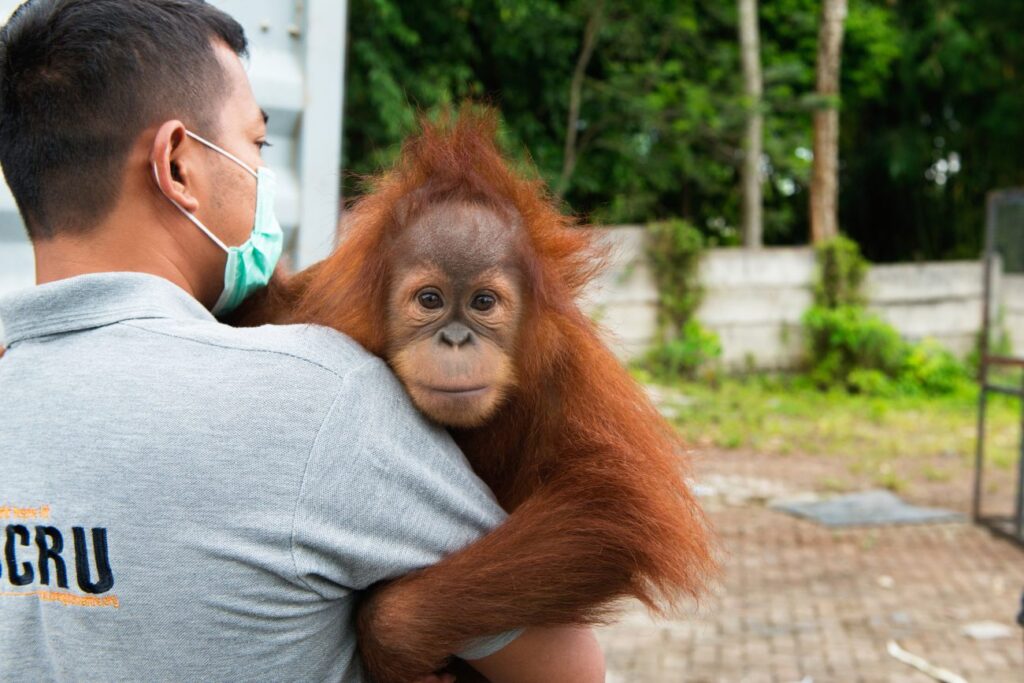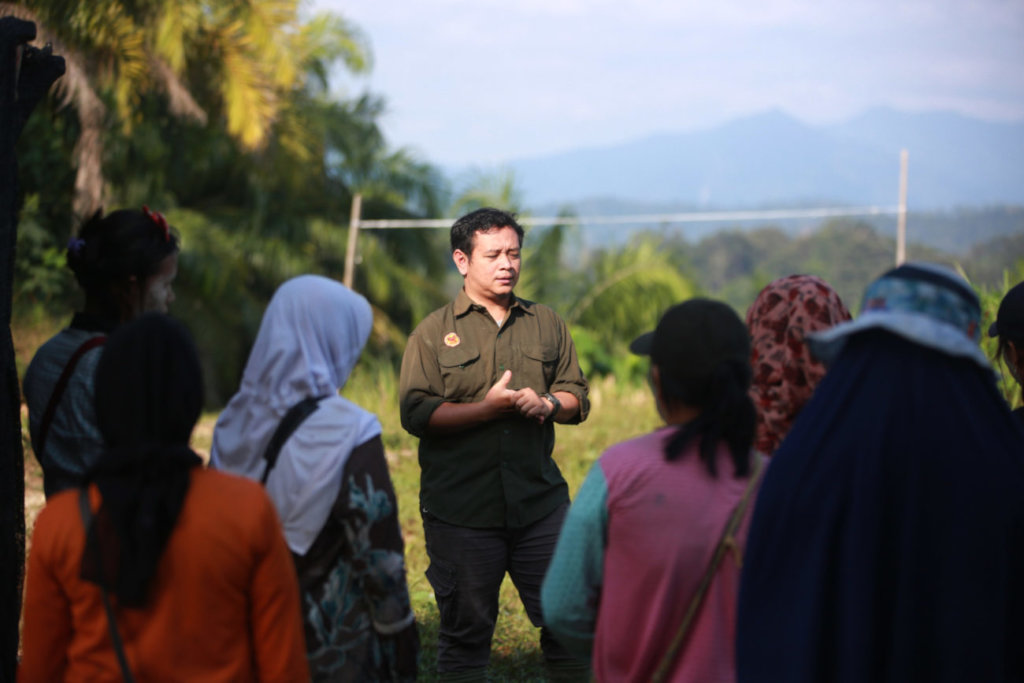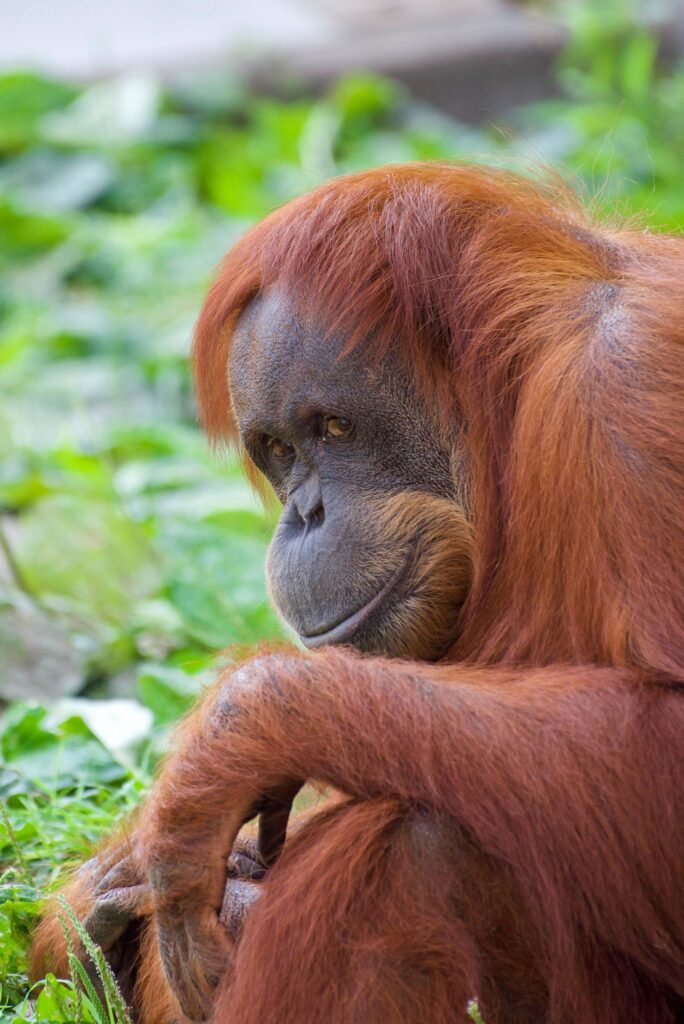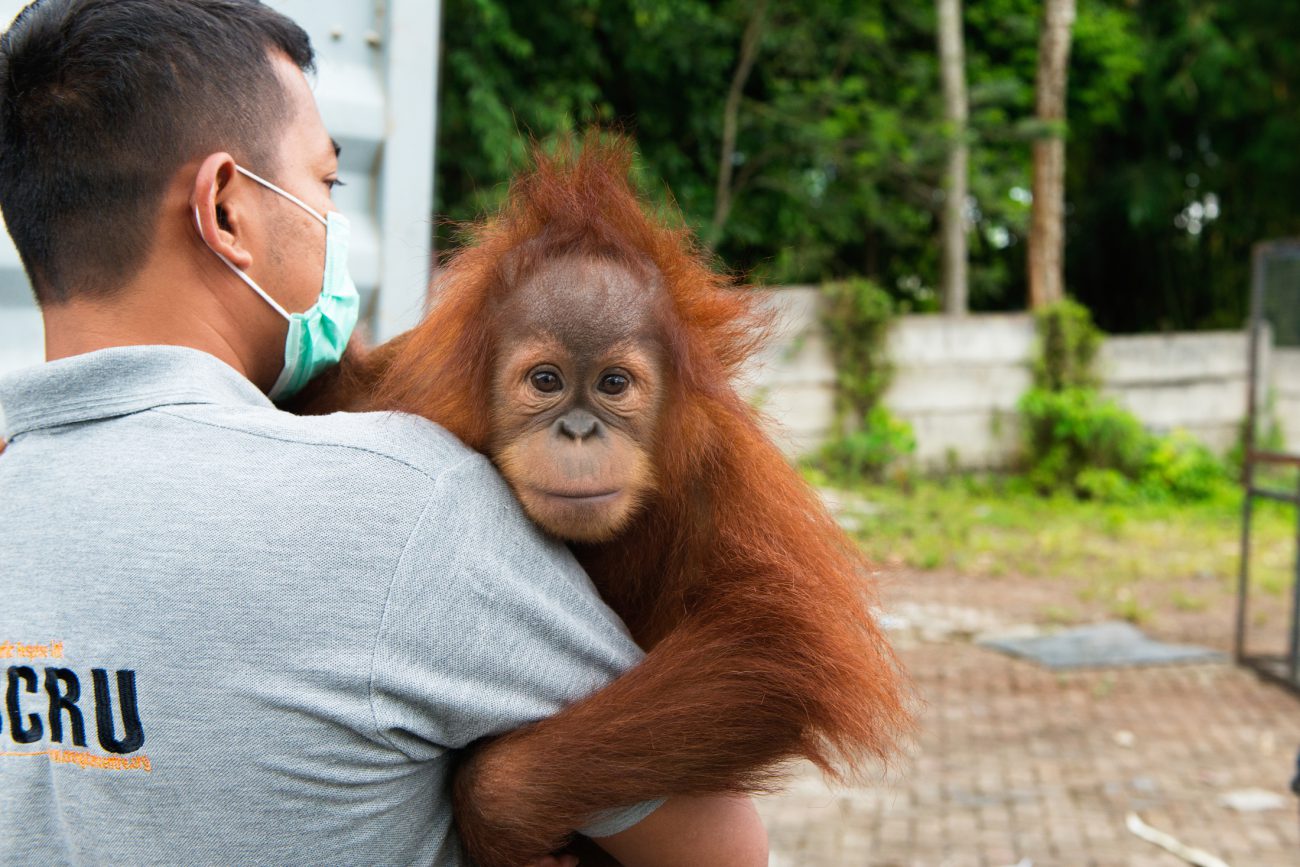Here at Little Soap Company, we do not believe that boycotting palm oil is the answer – instead, we want to play our part in transforming the industry. We are a small company but we want to add our voice to the growing call for palm oil companies to produce responsible palm oil and stop clearing forests. The whole sustainability issue is vast and that’s why we work closely with our pals at the Sumatran Orangutan Society (SOS) to explain why and how we’re playing our part in breaking the link between palm oil and the destruction of orangutan habitat. We sat down with SOS to discuss it all…

At Sumatran Orangutan Society, our mission is to protect orangutans, their forests and their future. We work closely with partners and forest-edge communities in Sumatra to ensure that orangutans have a safe future in the wild. Our work ranges from tree planting to sustainable livelihood projects, and we’re proud to collaborate so closely with the people who live and work alongside orangutans every day.
One of the major threats facing orangutans on Sumatra is the loss of their forest home. Like most places across the globe, land in Sumatra is a valuable commodity, so the forest is cleared to make way for agriculture, roads and other infrastructure. Much of the international focus on this forest clearance is on oil palms, a fast-growing crop which currently produces 36% of the world’s vegetable oil and is therefore found in a whole host of products, from shampoo and toothpaste to biscuits and bread. Oil palms grow in tropical regions, including Sumatra, and the effects of unsustainable palm oil production on species like orangutans lead some people to call for a boycott of palm oil and a switch to alternative vegetable oils instead.

Like Little Soap Company, SOS believes that, rather than a boycott, producing palm oil sustainably is the way forward to ensure the best outcome for wildlife and people. What does this mean? Essentially, palm oil that is produced without destroying forests, without damaging peatlands and with robust protection for human rights. One condition that a plantation must meet to be certified as sustainable is that any high conservation value forests within their area of operations must be protected. This means that forest patches and corridors, which provide habitat for wildlife and enable animals like orangutans to move through the landscape, are left standing rather than being bulldozed.
Although the intentions behind a boycott are good, there are unintended consequences which could be very damaging. A boycott could lead to palm oil prices being driven down, which in turn could increase demand from the less obvious parts of the palm oil market – biofuels and livestock feed, for example. A fall in price would also make it less appealing for palm oil producers to grow their crop in an environmentally sustainable way.
If the global demand for palm oil shrinks due to a boycott, producers could also decide to switch to growing an alternative crop. Oil palms are the most productive oil crop in the world – that 36% figure mentioned above comes from 6% of the total land devoted to oil crops – and switching to another type of oil such as soybean would result in the use of up to nine times as much land to produce the same yield. This, of course, would mean more forest would be cleared to make space for oil production – increasing the threat to wildlife and natural ecosystems.

It’s also important to consider the human angle when looking at ethical consumption. Over 4.5 million people in Indonesia alone rely on the palm oil industry as their primary source of income, and 40% of Indonesia’s palm oil is produced by smallholder farmers (not big companies). What happens to them if the industry disappears?
When oil palms are grown on already-degraded land (such as disused farmlands), carbon emissions can be reduced by over 99% compared with clearing rainforests to make way for plantations. If there is more demand for sustainable palm oil, farmers will have more incentives to use more environmentally friendly methods, and we can drive the whole industry in the right direction. There is a huge difference between conventional palm oil, and sustainable palm oil, which is produced without harming wildlife, forests, people, or the climate.

So, what can we all do to make a difference and to support the shift from conventional palm oil to sustainable palm oil as the norm? We can research which brands are committed to removing deforestation from their products (check out a fantastic bar-code scanning app called Giki, or use lists like this one from Chester Zoo), join social media campaigns to drive the industry in the right direction, and support conservation organisations who are working to break the link between palm oil and deforestation.
A donation to SOS helps us not only to turn back the clock on deforestation by rewilding areas of degraded land so they transform back into havens for wildlife, but also helps us keep forests safe by supporting our work to provide sustainable livelihood options so people living alongside orangutans don’t need to exploit the forests to survive. You can donate on our website at https://www.orangutans-sos.org/ and spread the word about our work by sharing our posts on social media – search for @orangutanssos on Facebook, Twitter and Instagram.

